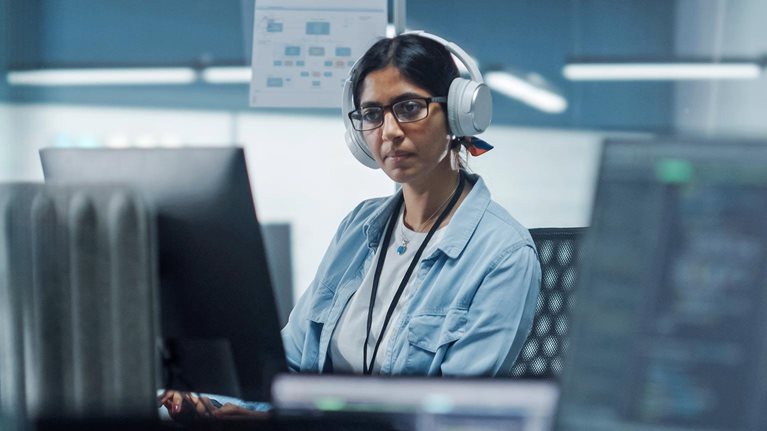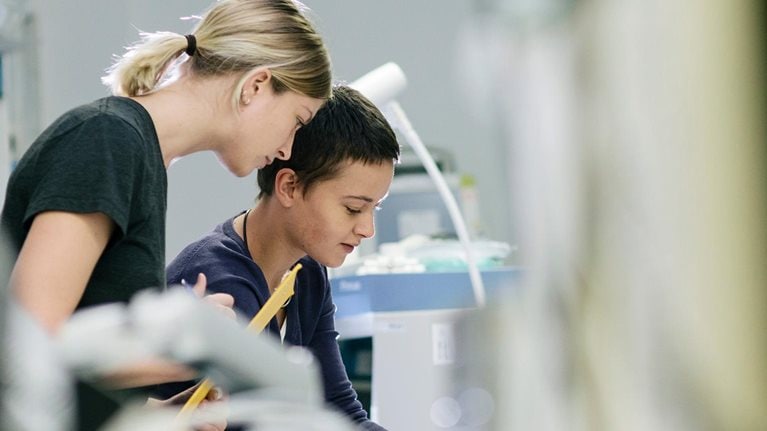Employers around the world face a growing skills crisis, as digital, data, and automation cause seismic shifts in employment, impacting roughly 30 percent of the global workforce. But there is opportunity here. Building new workforce capabilities can accelerate inclusive growth for national economies, increase socio-economic mobility among workers, and help organizations improve their financial and operational performance.
Investing in upskilling and reskilling workers is urgent, yet the playbook for doing so is outdated and won’t meet the multiplying need.
McKinsey’s recent reskilling capability-building work with a regional government department in Australia shows what’s possible—and what scale could look like.
A global skills crisis
A McKinsey Global Institute survey found that 87 percent of companies worldwide reported experiencing skill gaps now or are expecting to within the next five years, impacting productivity and competitiveness at corporate and national levels.
Our analysis shows that Japan will need a 2.5 fold increase in productivity growth over the next decade to maintain its recent GDP-growth rate. And the Tech Council of Australia forecasts that its nation will fall 200,000 tech workers short of its 1.2 million target by 2030, with only 7 percent of the non-tech workforce having a strong skills match with tech occupations.
Nearly all respondents to the McKinsey Global Institute survey identified closing skill gaps as a main concern, yet only one-third of respondents say their organizations are prepared to address potential role disruptions. Only 28 percent say their organizations make effective decisions on how to close skill gaps.
Upskilling and reskilling today’s workforce—in non-degree, skill-building programs—is critical to attracting and retaining talent while driving market competitiveness.
“Hiring alone will not meet future workforce demands,” says Rod Farmer, a McKinsey associate partner in Sydney and leader of customer experience and design work in Asia-Pacific for McKinsey Digital. “We’re rapidly moving from a job-based to a skills-based economy requiring more nimble, tech-savvy, and multi-disciplinary teams. We’re seeing significant skills gaps emerging across all sectors of the Australian labor market and broadly across Asia.”
One organization that understands this is Australia’s Department of Regional New South Wales (DRNSW), a government department supporting regional communities through agriculture, local infrastructure projects, soil conservation, environmental stewardship, economic development, and more.
The COVID-19 pandemic accelerated DRNSW’s need for a future-ready workforce. With most employees based in remote areas, many observed an increased need for digital skills but had not received the necessary technological training prior to the pandemic. Increased reliance on digital and data skills became both a strain on the agency’s productivity and accelerated digital inclusivity challenges.
Identifying needs, seeing new potential
At the onset of the pandemic, DRNSW took stock of its employees’ digital capabilities. The department uncovered a range of digital literacy challenges, ranging from frontline workers relying on friends and colleagues for help with basic digital tasks, such as emails and timesheets, to more complex tasks involving spreadsheets, where increased skills mastery was now essential.
We had many employees who were finding ways around using technology because it turned out they didn’t have basic skills—even like joining a Zoom meeting.
“We had many employees who were finding ways around using technology because it turned out they didn’t have basic skills—even like joining a Zoom meeting,” says Donna Mcleod, acting chief people officer of DRNSW. “It was a shock. We had to figure out how to make a fundamental, baseline shift.”
DRNSW had tried traditional learning approaches in the past, which fell short of shifting needs and operating models. It needed to move beyond employees learning on their own, separately from their work, which often leads to surface knowledge acquisition only.
“We saw there was a major need here—an opportunity for innovation and new capability building models within DRNSW where we could support the people of New South Wales, while also tackling a larger national skills-gap challenge,” says Rod.
Over the next 12 months, DRNSW and McKinsey built an enterprise Digital Skills Program, creating an entirely different reskilling engine at the heart of DRNSW.
Reinventing skill building
McKinsey and DRNSW began their journey by reframing the challenge. DRNSW took an applied skills development approach, focusing on the jobs-to-be-done. This shift meant an increased focus on employee-backed, context-dependent, and on-the-job skills development—solving real day-to-day people development and productivity needs.
Core to the DRNSW approach was contextualized learning: the notion that skill development does not happen in a classroom but while employees are on the job, with direct apprenticeship where they are able to immediately operationalize it. Human-centered design resulted in a program informed by a deep study of the individual’s and organization’s needs and pain points, brought to life through ethnographic research across regional and rural New South Wales, addressed in small peer-based groups with individual coaching, and supported by short feedback cycles.
“One of the universal pain points we observed was that it’s very difficult for people to make time for upskilling and reskilling beyond their day-to-day responsibilities,” says Donna. “It was important for us to develop a program that placed skill building at the core of their workday, supported by peers and mentors.”
The new DRNSW Skills Program helps to identify the specific skills, competencies and proficiency levels required at an organizational level within DRNSW roles. The program then helps assess employee skills, develop tailored programs to close the gaps, and support individuals in their role through direct peer-led coaching. Furthermore, the program scales from shorter upskilling modules to larger reskilling programs to support lateral internal hiring.
“We now measure skills readiness in months, not years,” says Rod, who led the DRNSW’s skills transformation. “This isn’t a yearly one-and-done type of problem. Organizations need to institute continuous reskilling and upskilling if they are to maintain future-ready workforces.”
To achieve this skills transformation, McKinsey and DRNSW worked with Mentem by UNSW. A new, independent business launched and backed by the University of New South Wales, Mentem helps corporate businesses upskill and reskill their employees at scale through tailored on-the-job training. This collaboration also provided employees the potential to receive micro-credentialling through time spent learning on the job—enabling access to credentialled learning at a global top 50 higher-education institution.
“Mentem exists to provide new educational models for employer and workforce needs in Australia and globally,” says Arvind Sampath, founding chief executive officer of Mentem. “Working with DRNSW was an exciting opportunity to leverage our knowledge and revitalize a government agency we all rely on.”
Another core element of the DRNSW Digital Skills Program is the ‘skills hub,’ critical for engaging the broader DRNSW organization and ensuring sustained impact as the program scaled. This new operational unit consists of a DRNSW squad with capability building specialists, human-centered designers, instructional designers, and program delivery experts.
To evaluate impact and prove the viability of scaling up the new program, Mentem developed a unique learning analytics platform that measured individual and cohort performance over time, leveraging learner management system analytics, project results, and coach feedback. The platform also provides automated interventions, or nudges, to individuals and coaches to drive program engagement and behavior change.
Transformative results
For DRNSW, the results exceeded expectations—and in record time—with over 90 percent employee satisfaction and 85 percent of participants reporting improved applied skills. The 8-week courses are now scaling across DRNSW.
“Other agencies couldn’t believe we built, piloted and started scaling this entire new approach to capability building in six months when this can typically take two or three years in government,” Donna says. “It was a phenomenal delivery.”
Gone are the days when some farmers would keep detailed logs in their pocket notebooks, then travel across the state simply to hand deliver the paper to colleagues who would provide some basic entry or email assistance. These types of changes, scaled throughout the agency, increased productivity and delivered improved services for constituents.
The program has already been recognized for its impact and employee-centric approach, winning the Best in Class award in the public-sector category from Good Design Australia, one of the most prestigious design awards in the world.
But the biggest testament to its success is the difference it made in the careers of the employees. “You have to realize, this has absolutely changed people’s lives,“ says Donna. Participants reported very high levels of increased confidence in performing their work, value from their coaches and overall satisfaction with the program.
“The program was very different from anything I’ve done before,” says Charlene, who completed the program. “The coaching was my highlight of the week.”

“To do these jobs, the way everything’s going digital, you need to upskill to get there,” says Glenn, another participant. “I thought, ‘wow, this program is for me.’”
The stakes for DRNSW were high—delivering government services that drive value for citizens is essential. But for corporate institutions, it could very much be a question of survival.
“If a government agency like DRNSW can make such a major shift with a traditionally non-digital workforce, then enterprises can meet the moment too.” says Roland Dillon, a partner with McKinsey’s Public & Social Sector practice based in Melbourne. “Not doing so could lead to an existential crisis as competitors not only leapfrog the market, but do so while taking talent that is hungry to learn and develop in an increasingly digital world.”



